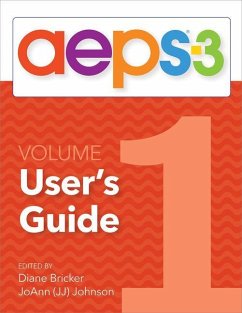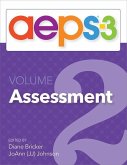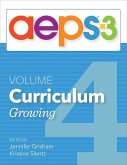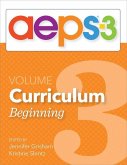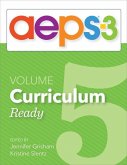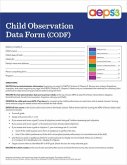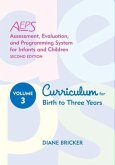Dr. Bricker served as Director of the Early Intervention Program at the Center on Human Development, University of Oregon, from 1978 to 2004. She was a professor of special education, focusing on the fields of early intervention and social-communication. Her professional interests have addressed three major areas: early intervention service delivery approaches, curricula-based assessment and evaluation, and developmental-behavioral screening. Dr. Bricker's work in early intervention approaches has been summarized in two volumes: An Activity-Based Approach to Early Intervention, Fourth Edition (with J. Johnson & N. Rahn; Paul H. Brookes Publishing Co., 2015) and An Activity-Based Approach to Developing Young Childrenâ (TM)s Social Emotional Competence (with J. Squires; Paul H. Brookes Publishing Co., 2007). Her work in curricula-based assessment/evaluation has focused on the development of the Assessment, Evaluation, and Programming System for Infants and Children, Second Edition (AEPS(R); with B. Capt, K. Pretti- Frontczak, J. Johnson, K. Slentz, E. Straka, & M Waddell; Paul H. Brookes Publishing Co., 2004). This measure and curricula provides intervention personnel with a system for the comprehensive assessment of young children with results that link directly to curricular content and subsequent evaluation of child progress. Dr. Bricker has been a primary author of the Ages & Stages Questionnaires(R) (ASQ(R); with J. Squires; Paul H. Brookes Publishing Co., 1995, 1999, 2009) and directed research activities on the ASQ system starting in 1980. Developmental Screening in Your Community: An Integrated Approach for Connecting Children with Services (Bricker, Macy, Squires, & Marks; Paul H. Brookes Publishing Co., 2013) offers a comprehensive system for creating and operating community-wide developmental-behavioral screening programs for young children. Dr. Bricker's distinctions include the Division of Early Childhood, Council for Exceptional Children Service to the Field Award, December 1992, and the Peabody College Distinguished Alumna Award, May 1995. Dr. Johnson is Emeritus Professor in Child and Family Studies at St. Cloud State University in Minnesota, where she retired from providing professional development education in early childhood education, early intervention, and early childhood special education. She completed her undergraduate degree in special education and elementary education at the University of Idaho and her masterâ (TM)s and doctoral degrees in early intervention at the University of Oregon under the advisement of Dr. Diane Bricker. Dr. Johnson has worked at University Centers for Excellence in Developmental Disabilities in Louisiana, Oregon, and Nevada as Program Coordinator, Teacher, Service Coordinator, Grant and Contract Administrator, Director, Principal Investigator, and Instructor. She served as Director of the Research and Educational Planning Center and the Nevada University Center for Excellence in Developmental Disabilities from 2001 to 2008, where she developed and administered lifespan programs, services, and supports for individuals with disabilities and their families. Her professional experiences encompass all service settings for young children, including neonatal intensive care units, pediatric intensive care units, well-baby clinics, home- and center-based programs for infants and young children (including Head Start and Early Head Start), nursing homes, supported employment, transition programs, special education schools, and university lab school programs. Much of her professional career has focused on developing and refining assessment and curriculum systems to support the provision of services, interventions, and teaching for young children with disabilities, birth to age 6, and their families. Dr. Johnson is author, developer, and trainer of An Activity-Based Approach to Early Intervention, Fourth Edition (with N. Rahn & D. Bricker; Brookes Publishing Co., 2015), and the Assessment, Evaluation, and Programming System for Infants and Children (AEPS; Brookes Publishing Co., 2002, 2022) and has been involved with the system since her days as a graduate student at the University of Oregon. In her spare time, Dr. Johnson likes to read, work on home projects, observe and interact with young children, and support human and animal rights. Dr. Dionne is Professor of Special Education at the University of Québec at Trois-Rivières (UQTR), where she has worked since 1997. She led the Canada Research Chair in Early Intervention from 2005 to 2015. She also served as Scientific Director of a research institute on intellectual disabilities and autism spectrum disorder. Dr. Dionne has served as Principal Investigator on numerous research studies focused on early intervention and early childhood special education. In 2016, she began work as a United Nations Educational, Cultural and Scientific Organization (UNESCO) Chair on screening and assessment of young children, collaborating with Dr. Jane Squires and colleagues from other countries. Project objectives include training graduate students and conducting research activities in early intervention for children from birth to 6 years of age who are at risk for or have disabilities. Dr. Grisham is Professor in the Interdisciplinary Early Childhood Education program at the University of Kentucky, Lexington. She received her doctorate in education from the University of Kentucky. She is also Faculty Director of the Early Childhood Laboratory at the University of Kentucky, an inclusive early childhood program for children from birth to 5 years of age. Dr. Grisham has directed research projects on topics including linking assessment and instruction, early care and education program quality, and individualizing instruction for young children with disabilities. In addition, she has conducted research on the effectiveness of instructional procedures that are embedded into developmentally appropriate activities, the application of multi-tiered systems of support in early childhood settings, and coaching teachers and caregivers to implement evidencebased instructional strategies with fidelity. Dr. Grisham is Project Director for the Kentucky Deaf-Blind Project, which provides technical assistance to families and service providers of infants, toddlers, children, and youth with deaf-blindness. She coauthored a book titled Reach for the Stars: Planning for the Future (with D. Haynes; American Printing House for the Blind, 2013), which is used to support families of young children in planning for their childrenâ (TM)s future and articulating their priorities to educational team members, as well as Blended Practices for Teaching Young Children in Inclusive Settings, Second Edition (with M. L. Hemmeter; Brookes Publishing Co., 2017), and Assessing Young Children in Inclusive Settings: The Blended Practices Approach (with K. Pretti-Frontczak; Brookes Publishing Co., 2011). Finally, Dr. Grisham directed the nationwide field test for AEPS-3. Dr. Grisham is frequently asked to provide professional development to state departments of education, universities, and local education agencies on topics for which she conducts research throughout the country. Dr. Grisham is co-founder of a childrenâ (TM)s home and preschool program in Guatemala City, Hope for Tomorrow, where she accompanies students for the education abroad program. Dr. Grisham also works internationally in other locations to promote inclusion of young children with disabilities. Marisa Macy is a full professor in the College of Education in the School of Teacher Education at the University of Wyoming. She holds the John P. Ellbogen Foundation Professorship of Early Childhood Education. Macy has more than 25 years of experience as an educator. She started her career as a special education teacher in Washington, and she has served in teaching and research roles at a number of higher education institutions, including the University of Oregon, Penn State University, University of Texas, El Paso, University of Central Florida, and University of Nebraska Kearney where she held the Cille and Ron Williams endowed chair of Early Childhood Education, as well as community chair for the Buffett Early Childhood Institute. Macy, a Seattle native, earned a bachelor's degree in English at the University of Washington and a post baccalaureate in K-12 special education from St. Martinâ (TM)s College in Olympia, Washington. She received master's and doctorate degrees in special education with early childhood special education and early intervention from the University of Oregon. Macy completed the Certificate in Early Education Leadership from the Graduate School of Education at Harvard. Dr. Slentz began her career in early intervention and early childhood special education with home visiting and classroom teaching with infants, toddlers, and preschoolers and progressed to directing a regional home-based early intervention program in Montana. For decades, she was involved in preservice preparation of early interventionists and early childhood special educators at University of Oregon and Western Washington University. She also provided technical assistance and program development for Part C in Washington. She is currently Professor Emeritus in the Department of Special Education at Western Washington University. Dr. Slentzâ (TM)s involvement with AEPS began with the earliest versions of the system and continues today, including development, consultation, research, and training. Her particular areas of interest and expertise are assessment and evaluation, infant development, early intervention, and working within family contexts across cultures. She has been fortunate to combine her love of travel with international training and consultation opportunities in Canada, United Arab Emirates, Singapore, and Kenya. Misti Waddell is Senior Research Assistant/Project Coordinator at the Early Intervention Program at the University of Oregon. She used the Assessment, Evaluation, and Programming System for Infants and Children (AEPS) in classroom settings early in her career and, since the early 1990s, contributed to the development and research of the second edition of AEPS (2002), including project coordination for several field-initiated research and outreach training projects. Most recently, Ms. Waddell served as coordinator for the field testing of AEPS-3. Her professional activities in curriculum-based assessment also focus on the social-emotional development of young children. She coordinated the research study Project SEAM: Preventing Behavior Disorders and Improving Social Emotional Competence in Infants and Toddlers with Disabilities to examine the psychometric properties of the Social-Emotional Assessment/Evaluation Measure, Research Edition (SEAMâ"[) (with J. Squires, D. Bricker, K. Funk, J. Clifford, & R. Hoselton; Brookes Publishing Co., 2014). She is currently part of the development team and serves as project coordinator for Project SELECT: Social-Emotional Learning in Early Childhood for Infants and Toddlers, a federally funded project to develop the curricular component of SEAM. Ms. Waddell provides training for early childhood teachers, interventionists, and parents in developmental and social-emotional screening, assessment, and intervention, including AEPS, SEAM, Ages & Stages QuestionnairesÂ(R), Third Edition (ASQÂ(R)-3), and Ages & Stages QuestionnairesÂ(R) Social-Emotional, Second Edition (ASQÂ(R) SE-2). Dr. Chen is Associate Professor of Early Childhood Intervention at Kent State University. She is the lead translator of the traditional version of Ages & Stages Questionnaires(R) in Chinese, Third Edition (ASQ(R)-3 Chinese) (by J. Squires & D. Bricker; Brookes Publishing Co., 2019). She received her doctorate in early intervention/special education from the University of Oregon and was a university postdoctoral fellow at the University of Connecticut Health Center. Dr. Chenâ (TM)s work focuses on the development and application of culturally and linguistically relevant assessments and personnel development in early childhood intervention. She loves reading, traveling, and cats. Dr. Rahn is Assistant Professor of Special Education at University of Wisconsinâ " Whitewater. She completed her undergraduate degree in communicative disorders at the University of Wisconsinâ "Madison, her masterâ (TM)s degree in early intervention at the University of Oregon, and her doctoral degree in special education at the University of Minnesota under the advisement of Dr. Scott McConnell. She has worked as a preschool special education teacher with children having a range of needs, including children with significant disabilities, and as an early interventionist providing services to infants and toddlers with special needs and their families. Dr. Rahn is author of An Activity-Based Approach to Early Intervention, Fourth Edition (with J. Johnson & D. Bricker; Brookes Publishing Co., 2015). While at the University of Oregon, she provided training on AEPS and earlier editions of An Activity-Based Approach to Early Intervention to programs around the country as part of an outreach training grant. Her areas of interest include naturalistic intervention strategies, early language and literacy interventions, response to intervention, and personnel preparation. Dr. Rahnâ (TM)s research focuses on embedded vocabulary and language interventions for young children with disabilities and at risk for disabilities.

